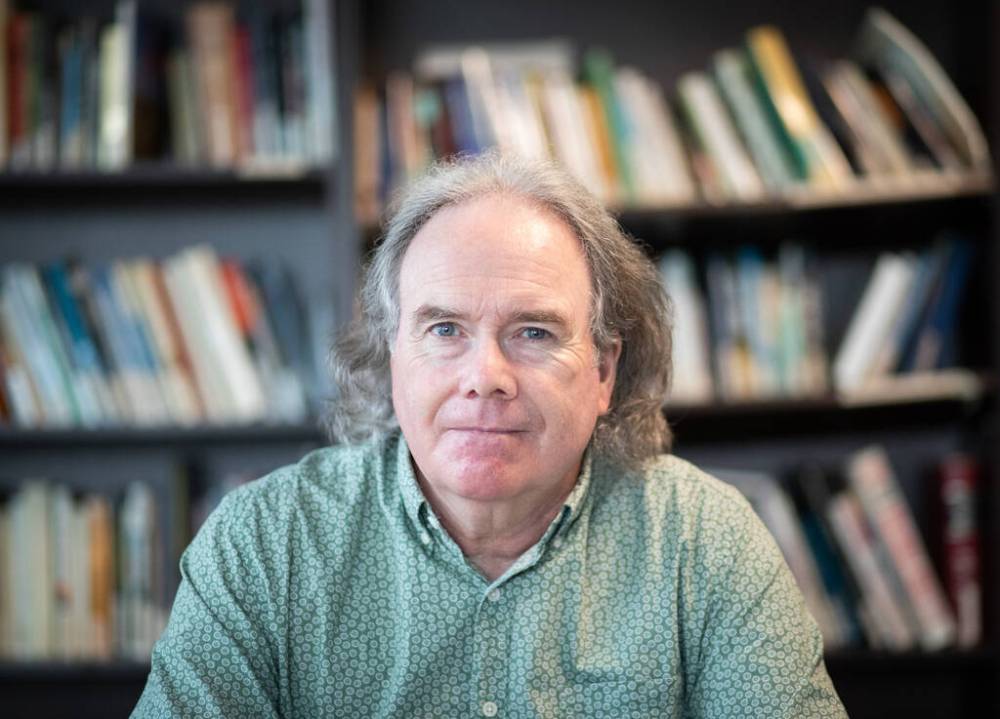Groups ‘nudge’ Winnipeg School Division on equity office pledge
Advertisement
Read this article for free:
or
Already have an account? Log in here »
To continue reading, please subscribe:
Monthly Digital Subscription
$0 for the first 4 weeks*
- Enjoy unlimited reading on winnipegfreepress.com
- Read the E-Edition, our digital replica newspaper
- Access News Break, our award-winning app
- Play interactive puzzles
*No charge for 4 weeks then price increases to the regular rate of $19.00 plus GST every four weeks. Offer available to new and qualified returning subscribers only. Cancel any time.
Monthly Digital Subscription
$4.75/week*
- Enjoy unlimited reading on winnipegfreepress.com
- Read the E-Edition, our digital replica newspaper
- Access News Break, our award-winning app
- Play interactive puzzles
*Billed as $19 plus GST every four weeks. Cancel any time.
To continue reading, please subscribe:
Add Free Press access to your Brandon Sun subscription for only an additional
$1 for the first 4 weeks*
*Your next subscription payment will increase by $1.00 and you will be charged $16.99 plus GST for four weeks. After four weeks, your payment will increase to $23.99 plus GST every four weeks.
Read unlimited articles for free today:
or
Already have an account? Log in here »
Hey there, time traveller!
This article was published 12/04/2022 (1328 days ago), so information in it may no longer be current.
INNER-city leaders are holding Manitoba’s largest school board accountable to its promise to establish a first-of-its-kind equity office — a project that trustees pledged to set up by August 2022, yet did not explicitly fund in their 2022-23 budget.
A dozen delegations, an unusual sight on a typical school board agenda, signed up to deliver presentations on education equity during a regular trustee meeting in the Winnipeg School Division Monday.
“It’s a nudge from the community,” said Tom Simms, co-director of the Community Education Development Association, ahead of an April 11 virtual event.

The WSD board unanimously voted to create a branch to oversee anti-racism initiatives and collect data on diversity demographics across its 78 schools at the end of last year. At the time, trustees agreed to launch the office by Aug. 1 and hire an external organization to undertake an audit on employment equity in WSD.
In doing so, the board answered calls from Equity Matters, a community coalition that formed in the fall to call on divisions and the province to create respective offices dedicated solely to addressing barriers for racialized students.
Representing more than 80 local organizations, the grassroots group argues tasking specific departments to track data on student race, gender and sexual orientation, as well as outcomes, would allow leaders to pinpoint gaps, set goals, and make plans to achieve them.
“For us, it’s really important that community sees that there is follow-through when promises are made,” said Kathleen Vyrauen, chairwoman of the Newcomer Education Coalition — one of the groups endorsing Equity Matters.
Vyrauen called the introduction of education equity offices across Winnipeg districts “absolutely essential” in order to address systemic racism, improve representation and outcomes for all students, and be accountable to the public.
“Often, we hear ‘We’re handling it internally,’ but I think that that offers a wall to hide behind sometimes, and having that independent entity come in and be able to really look at things through a fresh lens allows you to see… blind spots,” she said.
Approximately 34 per cent of the students in WSD self-identify as a member of a visible minority, while nearly 27 per cent of the pupils identify as First Nations, Métis or Inuit. Among the permanent teacher population, those figures trail behind at around 12 per cent and nine per cent, respectively.
While providing a virtual presentation Monday, the executive director of the Immigrant and Refugee Community Organization of Manitoba spoke about the importance of data in driving change, such as increased representation.
“Kids seeing role models that they can look up to is going to fundamentally change educational outcomes, school retention outcomes for kids. It’s going to change the curriculum. It’s going to produce trauma-informed approaches,” said Shereen Denetto, a community leader and parent in WSD.
Earlier in the day Monday, the chairwoman of the board reiterated WSD’s commitment to establishing an equity structure — and doing so before its self-imposed deadline.
“We want to make sure that no one is left behind because of their socio-economic status or because of their race or because of their physical or cognitive abilities. We acknowledge that there is systemic racism. We want to do an in depth look and we want to get an equity audit done,” said Betty Edel, who represents Ward 8, during a phone call.
Edel, who is Métis, spoke about WSD’s dedication to reconciliation and truth, which requires they reflect on both what is working and needs improving, and the board’s aspirations to collaborate with neighbouring divisions on the project.
On the subject of funding, the chairwoman acknowledged no money was specifically set aside for the office, but indicated there is money within the budget that can be accessed for its operations.
maggie.macintosh@freepress.mb.ca
Twitter: @macintoshmaggie

Maggie Macintosh
Education reporter
Maggie Macintosh reports on education for the Free Press. Originally from Hamilton, Ont., she first reported for the Free Press in 2017. Read more about Maggie.
Funding for the Free Press education reporter comes from the Government of Canada through the Local Journalism Initiative.
Every piece of reporting Maggie produces is reviewed by an editing team before it is posted online or published in print — part of the Free Press‘s tradition, since 1872, of producing reliable independent journalism. Read more about Free Press’s history and mandate, and learn how our newsroom operates.
Our newsroom depends on a growing audience of readers to power our journalism. If you are not a paid reader, please consider becoming a subscriber.
Our newsroom depends on its audience of readers to power our journalism. Thank you for your support.

